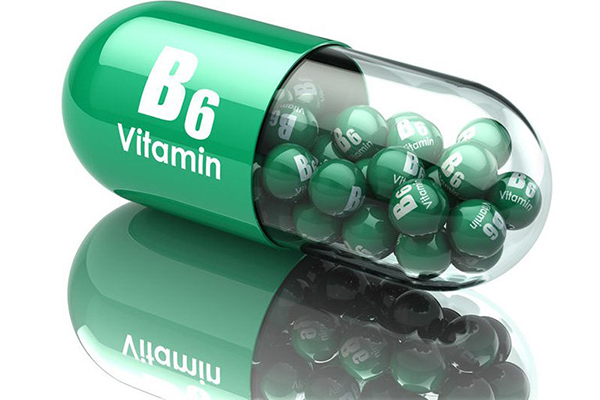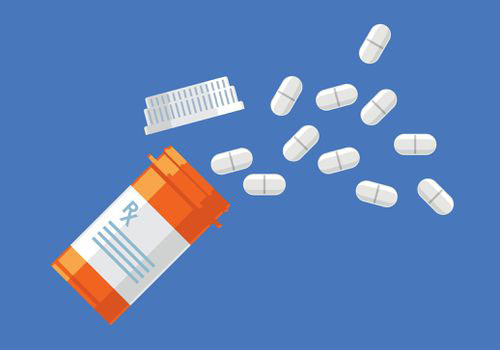That said, your brain is the most high-powered organ, and it requires the proper amount and type of nutrients to work correctly. If you do not give it the suitable fuel, it slows you down, hinders your concentration, and makes you dull and depressed. To prevent this and maximize brain power, you should focus on what your brain needs. And this article below will help you learn more about the top 10 best vitamins for brain health and where to get them.
Omega-3
Since our brain is made up of 60% fat, you need to give it the proper building block to optimize brain functions, and fat is one of the necessary factors. Fat has been insulted for years as “a bad guy” of health, but high-quality fat is good for your brain health and power. Omega-3 fatty acids are the essential nutrients that build the outer layer of brain cells and help enhance cognitive function and overall healthy brain.
Getting insufficient Omega-3 in your diet might lead to premature brain aging and cognitive failure related to a risk of Alzheimer’s disease and dementia.
Foods rich in Omega-3 include salmon, sardines, eggs, flaxseed, chia seeds, walnuts, and fish oil.

Vitamin B1 (Thiamine)
Our brain uses huge amounts of vitamin B1 during the day. If you lack this nutrient, it might break down the energy the brain needs to operate, thereby leading to issues such as fatigue, confusion, loss of short-term memory, or nerve damage. Hence, taking enough vitamin B1 is vital to deliver the energy to the brain cells and boost mood, energy, and alertness in order to get through the day.
Foods rich in vitamin B1 include sunflower seeds, macadamia nuts, black beans, lentils, and seaweed.
Vitamin B6 (Pyridoxine)

This vitamin is vital for producing serotonin and norepinephrine. While serotonin, your happy neurotransmitter, is necessary to enhance your mood, norepinephrine keeps your brain stay alert and focused. Like vitamin B1, vitamin B6 is needed to promote your mood as well as fight mental fatigue.
Foods rich in vitamin B6 include avocado, tuna, grass-fed beef, turkey breast, and pistachios.
Make sure you eat well to get enough vitamin B6, or you might deal with symptoms, like fatigue, memory trouble, loss of concentration, muscle pains, and irritability.
Vitamin B9 (Folate)
Folate is critical for not only overall growth but also normal brain development. It helps build many neurotransmitters the brain needs to connect and control the immune system. It also works as a natural antioxidant to maintain brain function and strengthen memory.
Low levels of vitamin B9 can be damaging to the brain. It might result in increased deterioration in the cerebral cortex as well as cognitive failure and impairment.
Foods rich in vitamin B9 include beef liver, spinach, broccoli, romaine lettuce, and asparagus.
Vitamin B12 (Cobalamin)
This is one of the necessary brain vitamins for red blood cell production and the nervous system functioning. It is thought to support mental performance and boost serotonin and dopamine production, which helps control mood. Since vitamin B12 is mainly found in animal products, people having a plant-based diet should add it from plant sources or supplementation.
Be careful because low levels of vitamin B12 might lead to serious outcomes, like brain fog, depression, memory loss, depression, anxiety, and confusion.
Foods rich in vitamin B12 include sardines, wild salmon, beef liver, eggs, nutritional yeast, spinach, potatoes, and mushrooms.
Magnesium

Magnesium plays a vital key in boosting brain activity and lowering anxiety and stress. It is critical for hundreds of metabolic processes in the body and brain, including promoting neuroplasticity, reducing the stress hormone, relaxing the nervous system, and offering anti-inflammatory benefits.
Foods rich in magnesium include avocado, almonds, cashews, black beans, and spinach.
Vitamin E
Oxidative stress is a metabolic process that might damage our cells. Antioxidants are vital to help the body prevent oxidative stress and keep the cells youthful and functioning effectively. And vitamin E works as a powerful antioxidant that might help you at this time. Also, it is anti-inflammatory, which helps maintain DNA healthy and reproduce properly while keeping brain cell membranes energetic and high-performing.
Foods rich in vitamin E include kale, parsley, Swiss chard, olives, and almonds.
Vitamin D
Vitamin D, also known as the “sunshine” vitamin, is associated with bone growth and reduced risk of heart disease. However, it also plays a vital role in your brain performance. Some studies have pointed out that low levels of this vitamin might hinder cognitive function and performance. If you rarely go outside in the natural sunlight, it might lead to vitamin D deficiency, thereby leading to the symptoms of brain fog and cognition.
The easiest and cheapest way to get enough vitamin D is to expose yourself to the sun. Also, you should consume egg yolks, fortified cereals, fatty fish, milk, and vitamin D supplements.
Vitamin C

Like vitamin E, vitamin C works as a powerful and necessary antioxidant for your brain. It helps protect the brain from the wear and tear of performing its job. Also, vitamin C is vital for producing vital neurotransmitters, like serotonin, dopamine, and norepinephrine. These are needed for regulating your mood. Plus, it might get rid of cortisol, a stress hormone in the bloodstream. The less amount of cortisol in your brain, the less likely you feel stressed.
Foods rich in vitamin C include citrus fruits, broccoli, spinach, bell peppers, tomatoes, and potatoes.
Zinc
Zinc is known to have good properties not only for general health but also for neuron growth and performance. Also, it is thought to have a vital role in supporting cognitive stability and might aid memory formation. What is more, it helps enhance the communication between the hippocampus and neurons in the brain, two vital components of the brain.
Foods rich in zinc include grass-fed beef, spinach, cashews, pumpkin seeds, and mushrooms.
The bottom line
Our brain always works hard and needs a lot of nutrients and fuel to keep it working well. Consuming a sufficient amount and proper types of vitamins and minerals from a variety of foods might help your brain. But remember that diet is just one piece of the puzzle. Make sure to have a healthy lifestyle like getting enough sleep, exercising, and staying socially active. And in case you want more brain power, it is fine to consider brain supplements.
NuBrain, one of the most popular brain boosters from the NuBest brand, might help fuel your brain to operate effectively. By taking two pills regularly, they will nourish every cell of your brain and keep it strong and healthy.
- Related post: 10 Best Supplements To Support Memory and Brain Health



